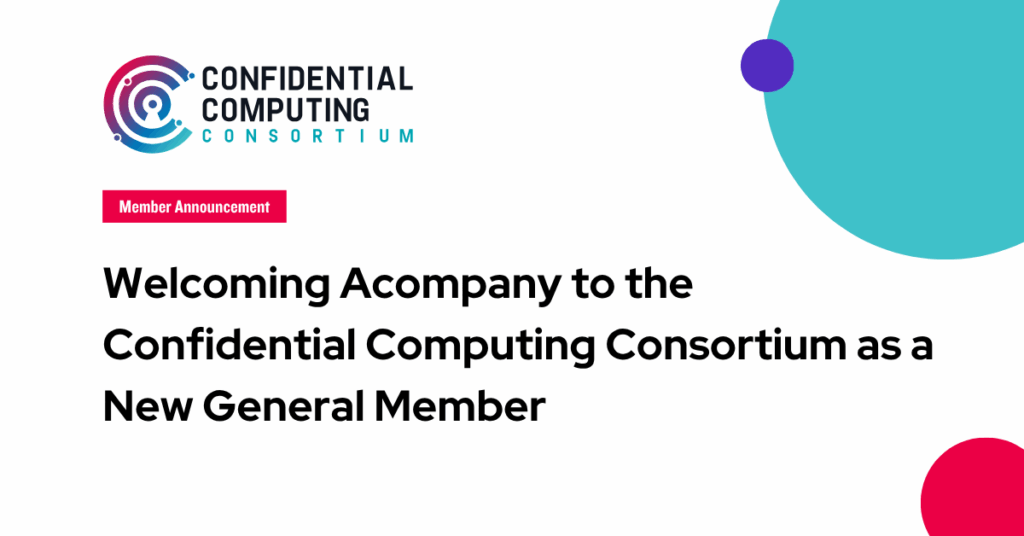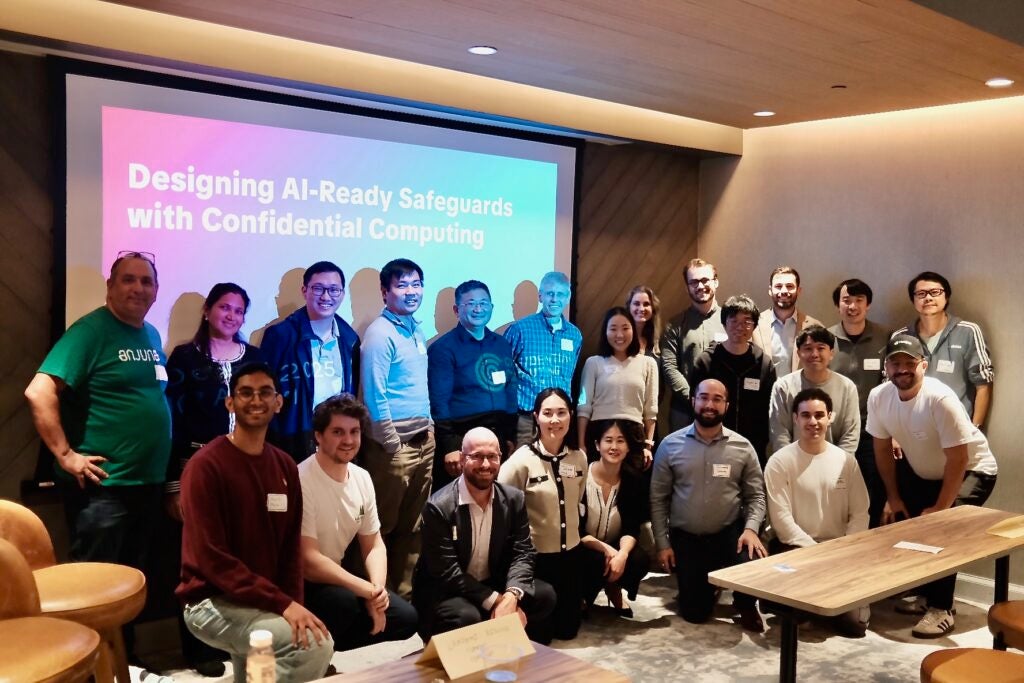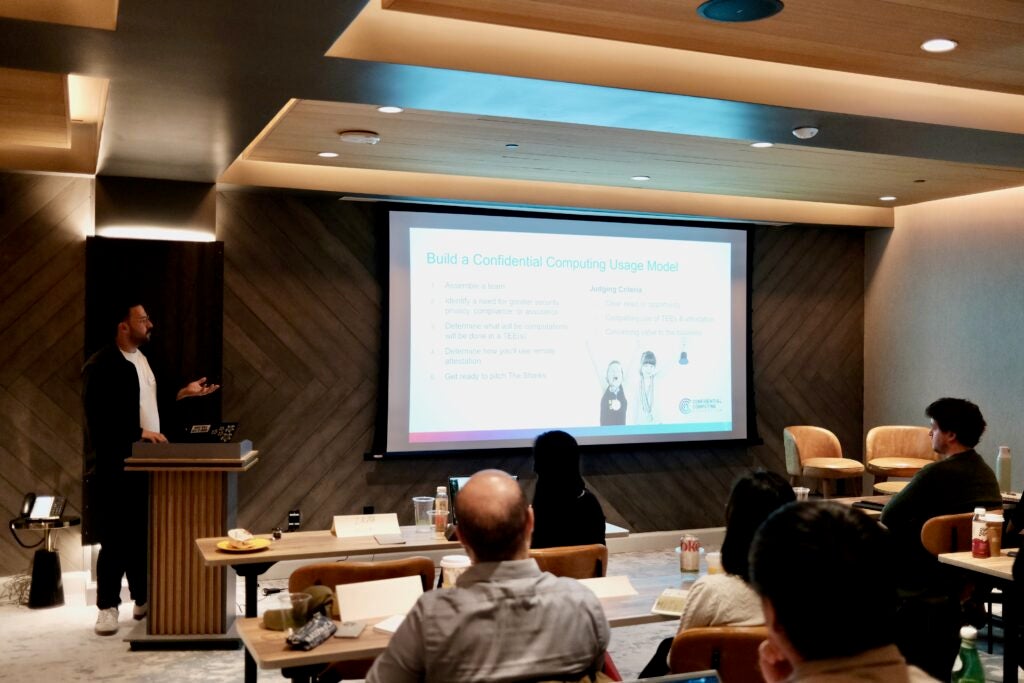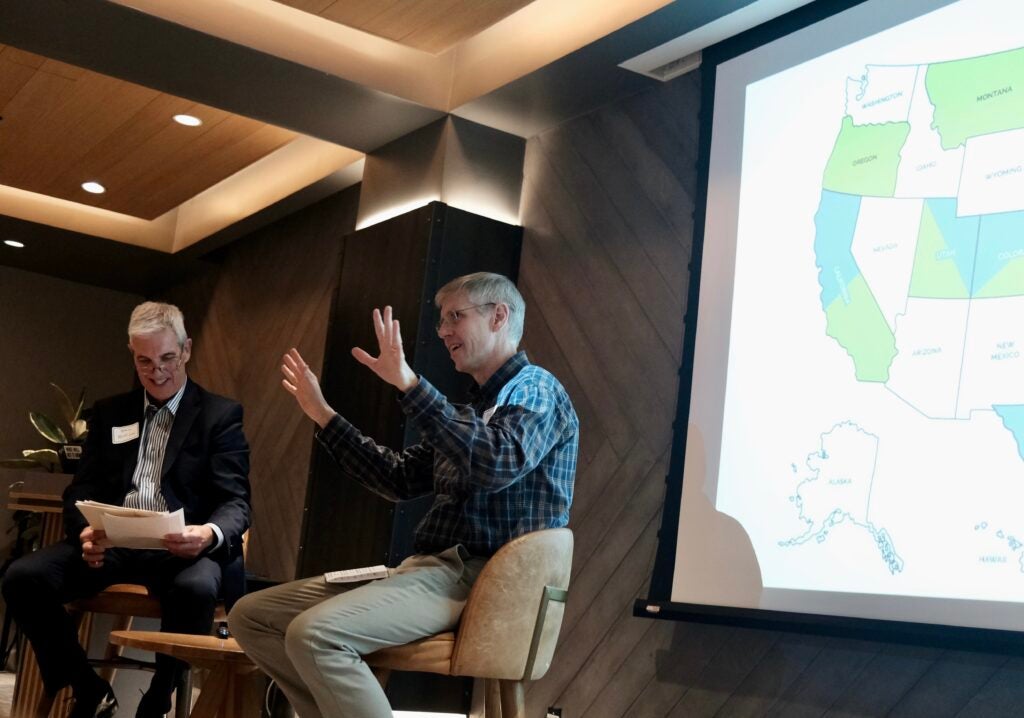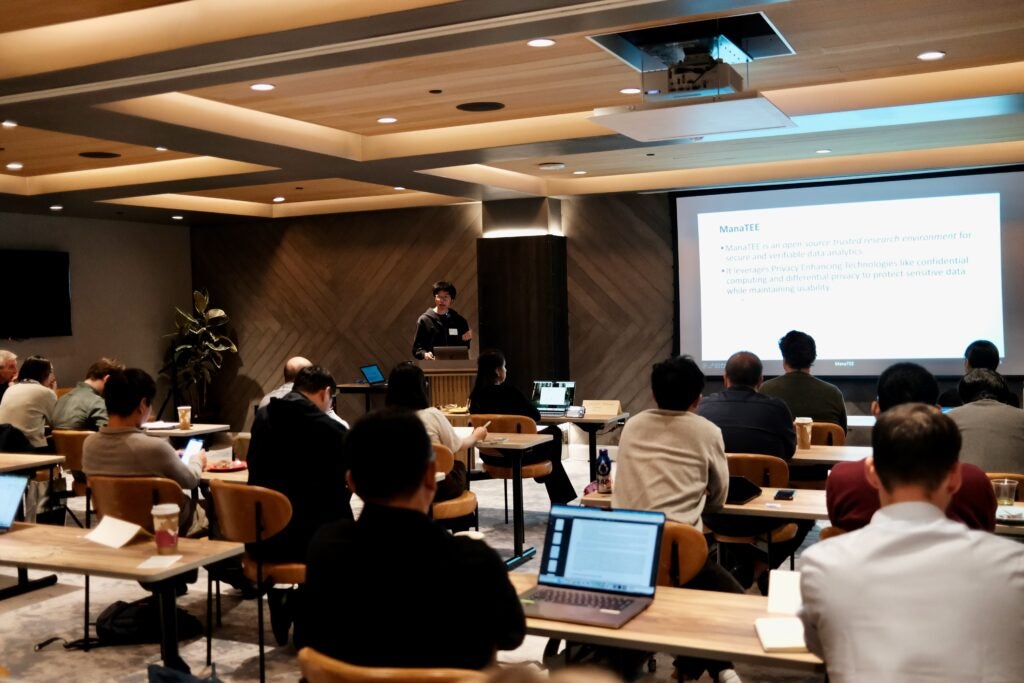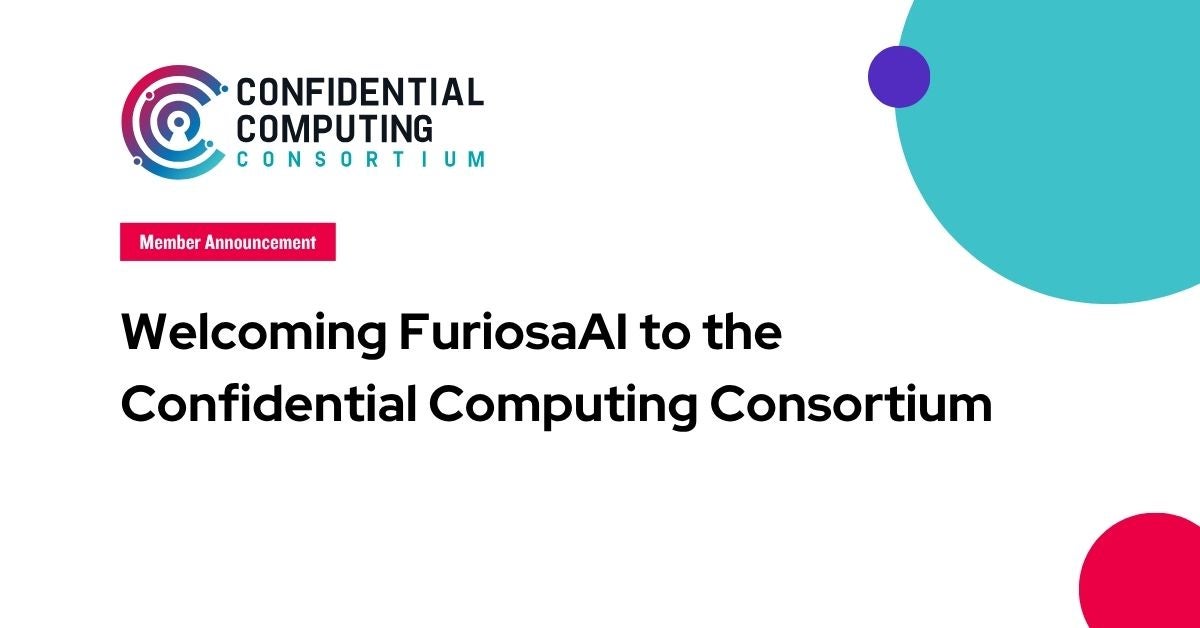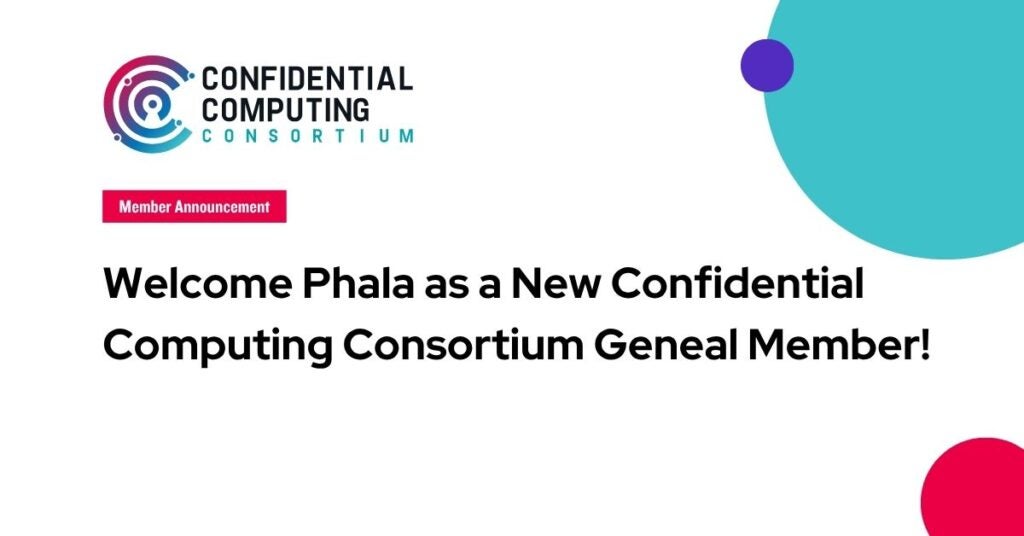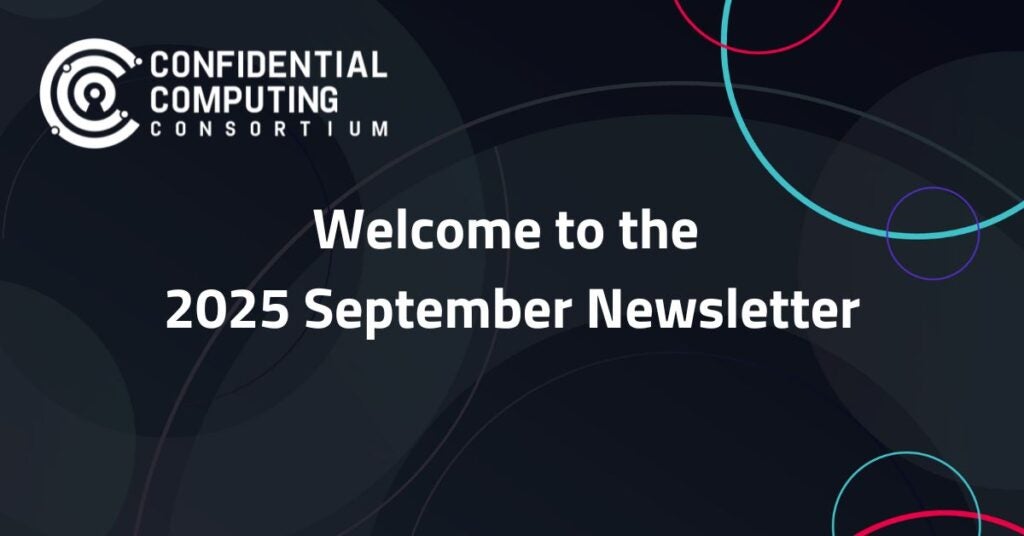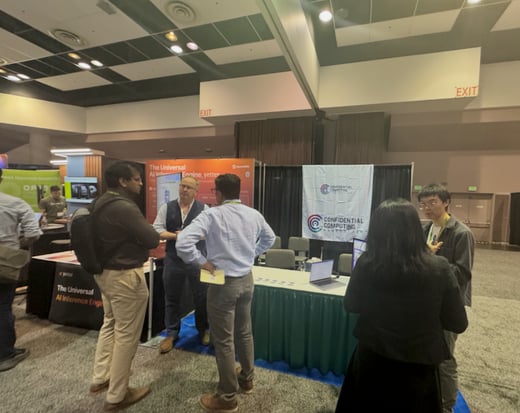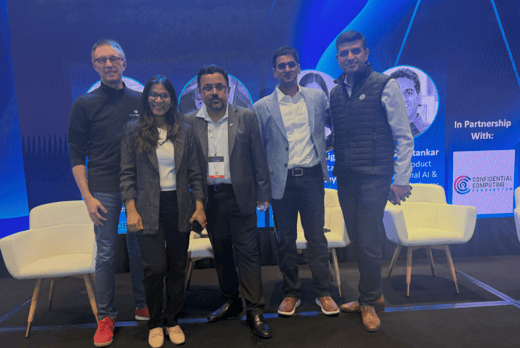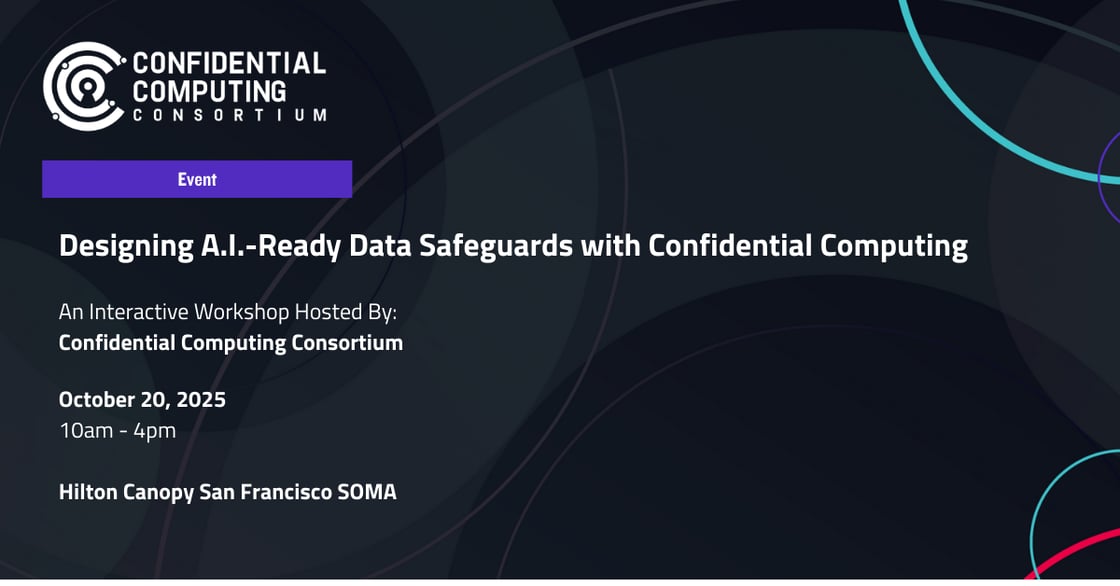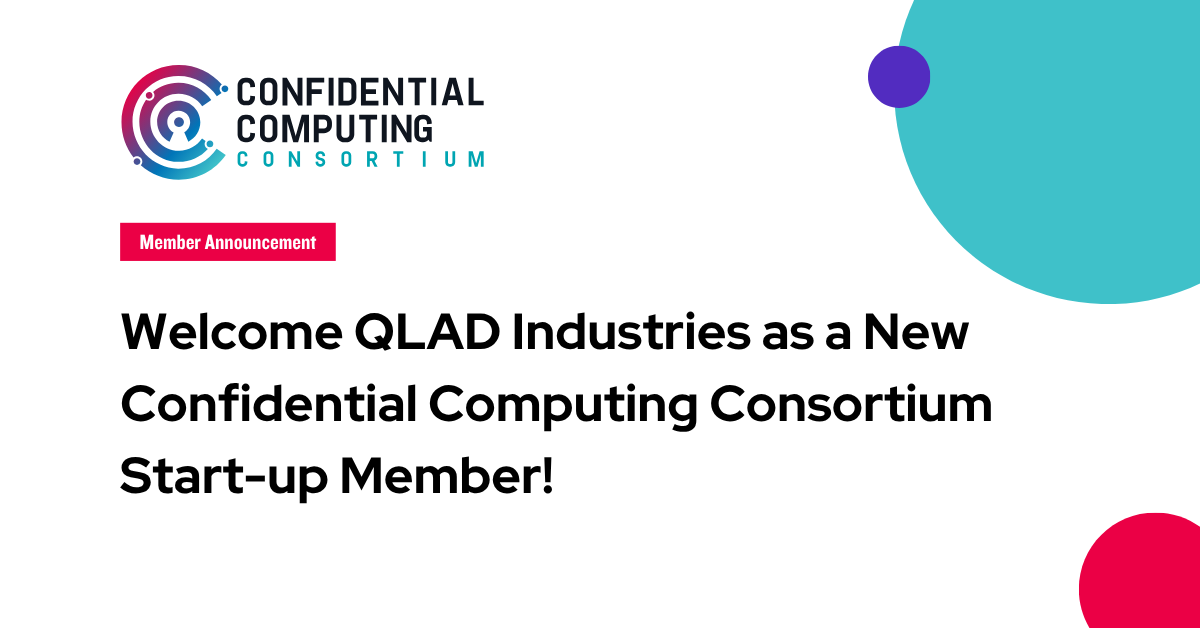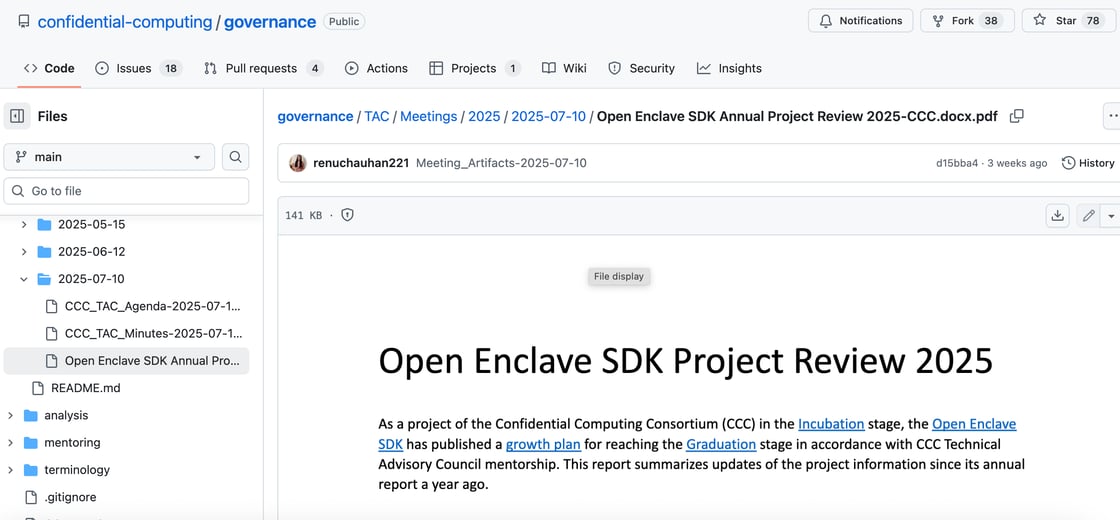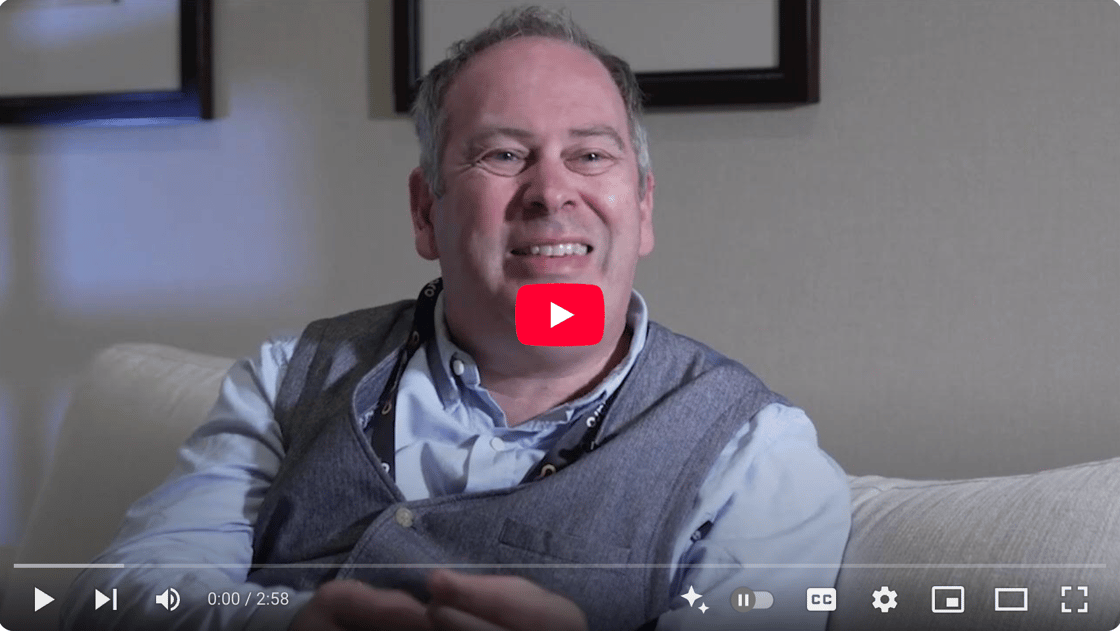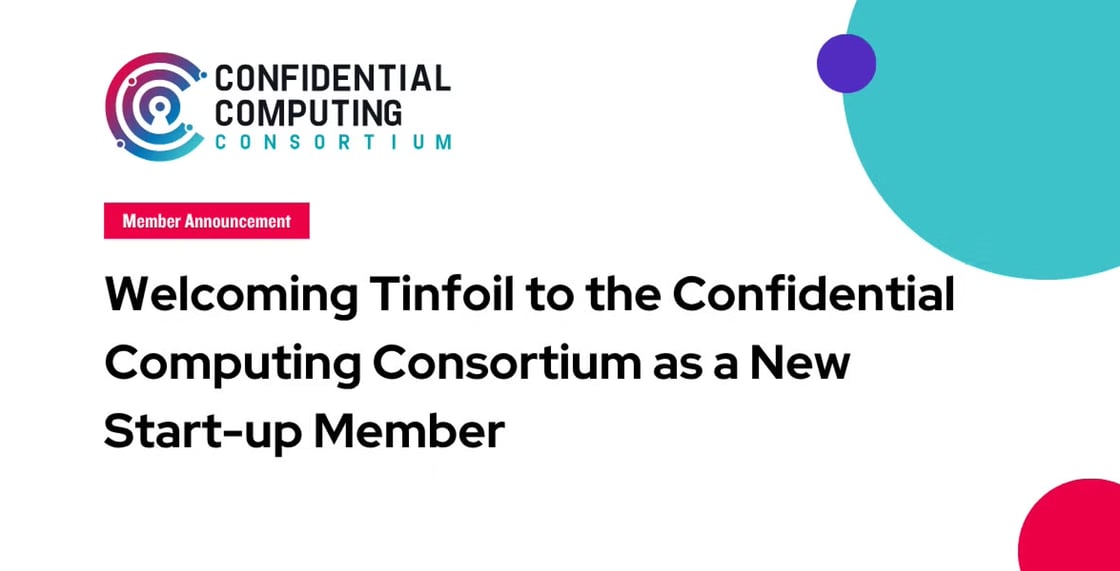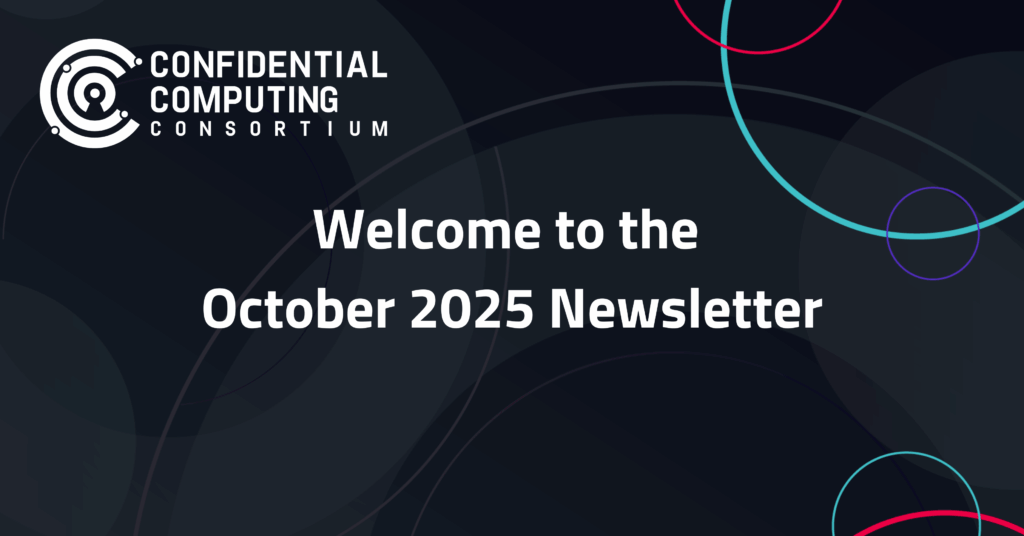
This month’s issue highlights key strategic developments within the CCC, including updates from the Executive Director on the Consortium’s evolving vision and upcoming 2026 priorities. You’ll also find coverage of recent outreach activities, from a successful workshop in San Francisco to our presence at the Open Source in Finance Forum in New York, along with the latest technical updates from the TAC. Finally, we share recent industry recognition from Gartner and welcome several new members advancing the mission to make Confidential Computing the foundation of secure and trusted computing worldwide.
From the Executive Director
October has been busy for the CCC. With two events (see below), new members, the creation of a research fund, new open source projects being considered for acceptance into the Consortium, the Governing Board has also been working to consider what the Consortium’s strategy for the next part of our lifecycle should look like, now that we’ve been around for six years. We considered a variety of options, with the following goal just coming out in front:
“Transform the CCC into the acknowledged leader in creating and disseminating technical excellence for CC, promoting design best practice, use cases and reference architectures. Focus: best practice technical blueprints to service CC demand.”
Close behind was a vision to engage more closely with regulators and standards bodies and system integrators to build demand for CC, and the members of the GB also expressed a clear commitment to finding ways to increase engagement of all members in the work of the CCC, in alignment with the priorities of the individual members and their strategic prioririties. I expect the work of the Executive Director over the next year and beyond closely to reflect these aspirations. In our November meeting, we plan to agree a budget for 2026 to support these goals, but in the meantime, please feel free to get in touch with me to discuss how you and your organization can make the most of these changes in how you work with and develop Confidential Computing opportunities.
Outreach
- The Outreach Committee staged a successful customer workshop in San Francisco on October 20, featuring ten speakers and 30 attendees from industries ranging from pharmaceuticals to finance. Engagement was very high as attendees explored a wide range of use cases and the benefits of several active Confidential Computing deployments. The versatility, security, and compliance advantages of Confidential Computing were on full display, especially as the computing world ramps up AI. See the full report on the CCC Blog here.
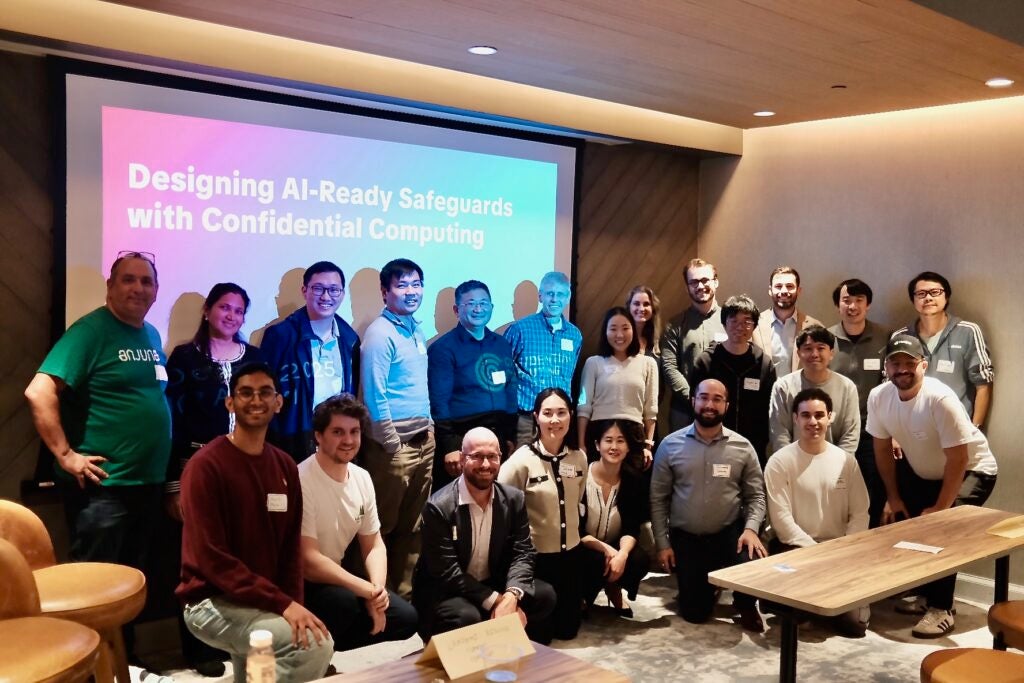
- The CCC was one of the Lead Sponsors for this month’s Open Source in Finance Forum in New York, with a keynote (“How to Trust a Banker”) and a track dedicated to Confidential Computing on Wednesday, the second day. Finance provides myriad use cases for Confidential Computing, and sessions in the track covered material ranging from a technical introduction to Confidential Computing to hands-on examples, use of CC to demonstrate compliance, and presentations from Google, Fr0ntierX, Super Protocol and Symphony. Conversations in the “Hallway track” also revealed that many organizations are already trialling, testing and deploying Confidential Computing in a variety of situations, and how relevant our work is to various parts of the finance sector.
From the TAC
We are always looking for new ways to assist our open source projects. CCC projects already receive a number of [benefits]. As we budget for 2026 we are proposing to create a larger benefit for a couple of projects. We want to make a material amount of funding available to help solve one problem for a project. What that problem is will vary from project to project. For example, a 3rd party security audit, by definition cannot be conducted by the project’s own maintainers. In order to keep the amount significant we will only be able to support 2 projects in this way (versus spreading a smaller amount to all projects).
Another area of continuous improvement is our own efficiency on the TAC. We have traditionally met for 2 hour sessions fortnightly. This month we compressed the meeting down to 1 hour on the same fortnightly cadence. If you were used to joining us at 7am Pacific time on alternating Thursdays, you would now join us at 8am Pacific time. To keep the same velocity of work, we are shifting some prep work to the mail list and github issues. That way our scheduled time together will be more productive.
Recent News
- Gartner identifies Confidential Computing as one of the top strategy technology trends for 2026. By 2029, Gartner predicts more than 75% of operations processed in untrusted infrastructure will be secured in-use by confidential computing. Read the article.
New Member Announcement
- We’re pleased to welcome Acompany Co., Ltd. as the newest General Member of the Confidential Computing Consortium. By joining the CCC, Acompany reinforces our shared goal: to make Confidential Computing the default for secure data processing and trusted AI just as HTTPS became the default for the web. Read the announcement.
- We’re pleased to welcome FuriosaAI as Confidential Computing Consortium’s newest startup member! By joining CCC, FuriosaAI hopes to contribute its expertise in hardware-accelerated inference while learning from the community’s efforts to standardize and advance confidential computing practices. Read the announcement.
- We are excited to welcome Phala Network as the newest General Member of the Confidential Computing Consortium! Phala is a secure cloud platform enabling developers to run AI workloads inside hardware-protected Trusted Execution Environments (TEEs). They are also contributing directly to CCC-hosted projects, with their open-source project, dstack, now part of the Linux Foundation under the CCC. Read the announcement
Best regards,
The Confidential Computing Consortium
